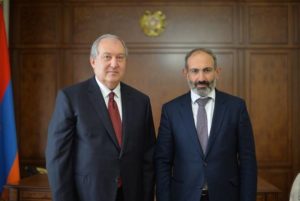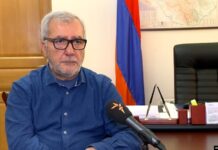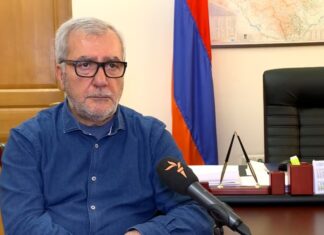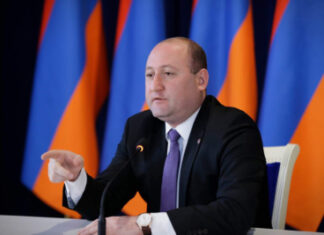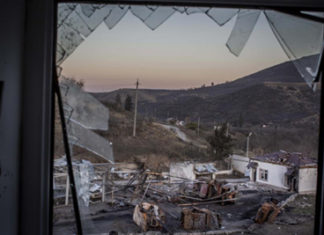YEREVAN — Armenian President Armen Sarkissian may have reignited political intrigue in Armenia when he announced his resignation late on Sunday, January 23. In the announcement posted to the presidential website, Sarkissian bemoaned the lack of executive power that the Constitution affords the office of the president, which he claims, denies him access to “the appropriate tools” to influence matters of war and peace, or solve systemic domestic and foreign policy problems.
“We have a paradoxical situation when the president has to be the guarantor of statehood without actually having any real tools,” Sarkissian was quoted as saying, adding that the Constitution contains certain flaws which, among other things, prevents well-known experts from the Diaspora to participate in the management of state institutions in their historical Homeland.
He also grumbled over what he described as his family and himself being targeted by “various political groups.” The president and his family have indeed been at the center of much public cogitation since he was first tapped as former President Serzh Sargsyan’s replacement in early 2018. Questions have lingered over his ties to several prominent figures, including the British royal family, his citizenship status, and the source (and location) of his massive wealth.
Prior to his political life, the 69-year-old Sarkissian had a flourishing career as a mathematician, physicist and computer scientist. He is famously credited as one of the creators of the early Nintendo puzzle game Tetris, and its offshoot, Wordtris. Upon independence, he briefly served as Armenia’s fifth prime minister in the 1990s before taking up office in London as Armenia’s longest-serving ambassador to the United Kingdom — a role he kept until 2018 when he accepted the position of President of the Republic of Armenia.
Under this new arrangement, Armen Sarkissian would be elected by the National Assembly to the purely ceremonial role of President of the Republic on April 9, 2018, under the newly amended constitution which simultaneously went into force, freeing his predecessor, Serzh Sargsyan (no relation) to then assume the newly-bolstered role of prime minister, which would hold most executive functions, including direct control over the military, police and security establishment.
What was likely intended as a typical post-soviet transition of elites quickly triggered a series of events culminating in the May 2018 Velvet Revolution, where the regime was brought down by months of large-scale peaceful demonstrations. The newly-appointed President Sarkissian was credited with playing a critical role in brokering productive dialogue between the government and the opposition, thus securing a peaceful transition.



